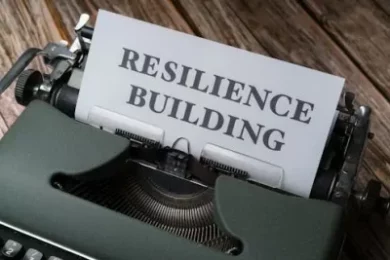Resilience is the capacity to recover from adversity and adjust to change. For preserving mental health and fitness, it is a crucial ability. The following are some essential ideas about developing resilience:

1. Recognizing and accepting emotions: The first step in developing resilience is to recognize and accept all of our feelings, especially unpleasant ones. We must allow ourselves to experience and manage our emotions in a healthy manner.

2. Creating a positive outlook: A positive outlook can support the development of resilience. This entails concentrating on the here and now, cultivating thankfulness, and transforming unfavorable thoughts into uplifting ones.

3. Creating a support system: A solid support system is essential for fostering resilience. We can get the emotional support and inspiration we require during trying times by surrounding ourselves with helpful and understanding people.

4. Engaging in self-care: To build resilience, it is important to prioritize self-care by tending to our physical, mental, and emotional well-being. This involves ensuring adequate rest, following a healthy diet, exercising regularly, and pursuing activities that bring us joy and relaxation.

5. Setting realistic goals: Even in the face of failures, staying motivated and focused can be aided by setting realistic and attainable goals. Larger goals can feel more reachable and manageable if they are divided into smaller, more manageable tasks.

6. Developing problem-solving abilities: Developing strong problem-solving skills fosters resilience. This entails determining the issue, developing potential solutions, weighing the benefits and drawbacks, and acting to resolve the situation.

7. Engaging in self-compassion exercises: Self-compassion exercises enhance resilience. We must view ourselves with the same sympathy and understanding that we would extend to a friend going through a trying moment.

8. Seeking professional assistance when necessary: Developing resilience does not require us to tackle difficulties alone. Expert services like therapy or counseling can give us more support and direction when needed.

9. Developing healthy coping strategies: Healthy coping strategies, including practicing mindfulness, finding creative outlets, or journaling, can aid with stress management and resilience development.

10. Accepting change and flexibility: Being resilient entails accepting change and adaptability. Adapting and modifying our mentality and strategy can help us deal with the unexpected turns that life takes more successfully.
Always keep in mind that developing resilience takes a lifetime. It necessitates patience, practice, and time. By implementing these techniques into our daily lives, we may build the resilience required to deal with the difficulties and disappointments that come with life, ultimately enhancing our mental health and general well-being.

